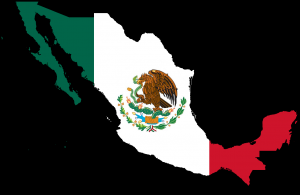 Mexico’s business sector is becoming more vibrant, and foreign direct investment continues to grow, resulting in an emerging middle class. Philanthropy and volunteerism have become more widely embraced, particularly by Mexico’s private sector. Yet the appearance of the middle class has masked the important pockets of poverty, and some international funding has been redirected to other countries. They are in a Catch 22 situation represented by this saying: “poor no more/developed not yet.” Corporate donations are the single most important source of grants for Mexico’s nonprofit sector, contributing more than half of the grants. In fact, of the top 100 donors in Mexico, 32 are corporate foundations, 8 founded by successful business people and 8 established by business groups. So business is certainly having a significant philanthropic impact!
Mexico’s business sector is becoming more vibrant, and foreign direct investment continues to grow, resulting in an emerging middle class. Philanthropy and volunteerism have become more widely embraced, particularly by Mexico’s private sector. Yet the appearance of the middle class has masked the important pockets of poverty, and some international funding has been redirected to other countries. They are in a Catch 22 situation represented by this saying: “poor no more/developed not yet.” Corporate donations are the single most important source of grants for Mexico’s nonprofit sector, contributing more than half of the grants. In fact, of the top 100 donors in Mexico, 32 are corporate foundations, 8 founded by successful business people and 8 established by business groups. So business is certainly having a significant philanthropic impact!
The Conference Board’s Global Social Investing Council was hosted at the Mexico Embassy’s Mexico Cultural Institute in Washington DC. A presentation was given on the economic and social landscape of the country. That was followed by a robust discussion with panelists from the Embassy of Mexico; Woodrow Wilson Center’s Mexico Institute; US‐Mexico Foundation; and, CEMEX. The session was curated by Michael D. Layton, Ph.D., Director, Philanthropy and Civil Society Project, Department of International Studies, Instituto Tecnológico Autónomo de México (ITAM). Businesses are beginning to respond to social responsibility and sustainability. There is a movement towards greater transparency and accountability: Mexico now has a website for data on nonprofits and grantmakers, Funds in Plain Sight, which got a helping hand from the Foundation Center. Volunteerism is becoming more common, particularly among corporations, with an increasing number of programs coming online every year.
Mexico’s nonprofit sector is relatively small, but contains a growing body of innovative social enterprises that are addressing the most important issues of the day. Currently, there are just under 7,000 nonprofit equivalents in the country compared to the 1.4 million 501(c)(3)s in the U.S. According to a poll conducted by the ITAM, 80% of individuals prefer to give directly to people in need, rather than through institutions: the challenge is for the generosity of Mexicans to be increasingly directed into institutional channels, so that the impulse to help those in need can result in lasting change. And then Mexico is a “paternalistic society” where there is an expectation that someone else will fix the problems. At the same time, there is growing public awareness of what is happening around the world and people are beginning to demand change. Remittances into Mexico total $20 billion USD annually with hometown associations collecting and aggregating the remittances as the government provides a 3 to 1 match. It’s complicated!
The fiscal framework allows both for tax-exemption for nonprofit organizations and grant making foundations, and they can receive tax-deductible donations from both businesses and individuals. Recent regulations to curb money laundering have had an unintended negative impact. Grants of $7,100 or more require disclosure of the granting organization’s chief executive’s personal information. Can you see your CEO’s personal data being made public, and can you imagine calling up stairs to ask for it! Obviously this is a show stopper. Regulators are aware of the issue and intermediaries may be able to provide a solution.
A number of intermediaries offer assistance to corporations to launch new programs or improve existing ones, including: Fondo Unido Mexico, the first affiliate of United Way outside of the US; the US-Mexico Foundation, which seeks to facilitate binational partnerships; FUNDEMEX, whose main thrust is the creation of sustainable and inclusive value chains; Synergos Institute, which has a representative in Mexico City; Alternativas y Capacidades, AC, a nonprofit that offers technical assistance and training; and, nearly two dozen community foundations, more than any other Latin American country.
In addition to the various issue areas that need help, panelists did ask attendees for help in educating Mexican businesses in best practices in CSR and Philanthropy. In general, companies lack the skills to effectively plan and implement programs. This could be an interesting collaborative opportunity for skills-based volunteering, going to various locations and conducting seminars. And opportunities for cross boarder employee exchanges of community/philanthropy staff. Really a great learning for all.
Woodrow Wilson Center’s Mexico Institute US‐Mexico Foundation
http://www.wilsoncenter.org/program/mexico-institute
US‐Mexico Foundation
http://www.usmexicofound.org/
CEMEX
http://www.cemex.com/SustainableDevelopment.aspx
Michael Layton’s publications
https://itam.academia.edu/MichaelDLayton
Funds in Plain Sight (in Spanish)
http://www.fondosalavista.mx/
